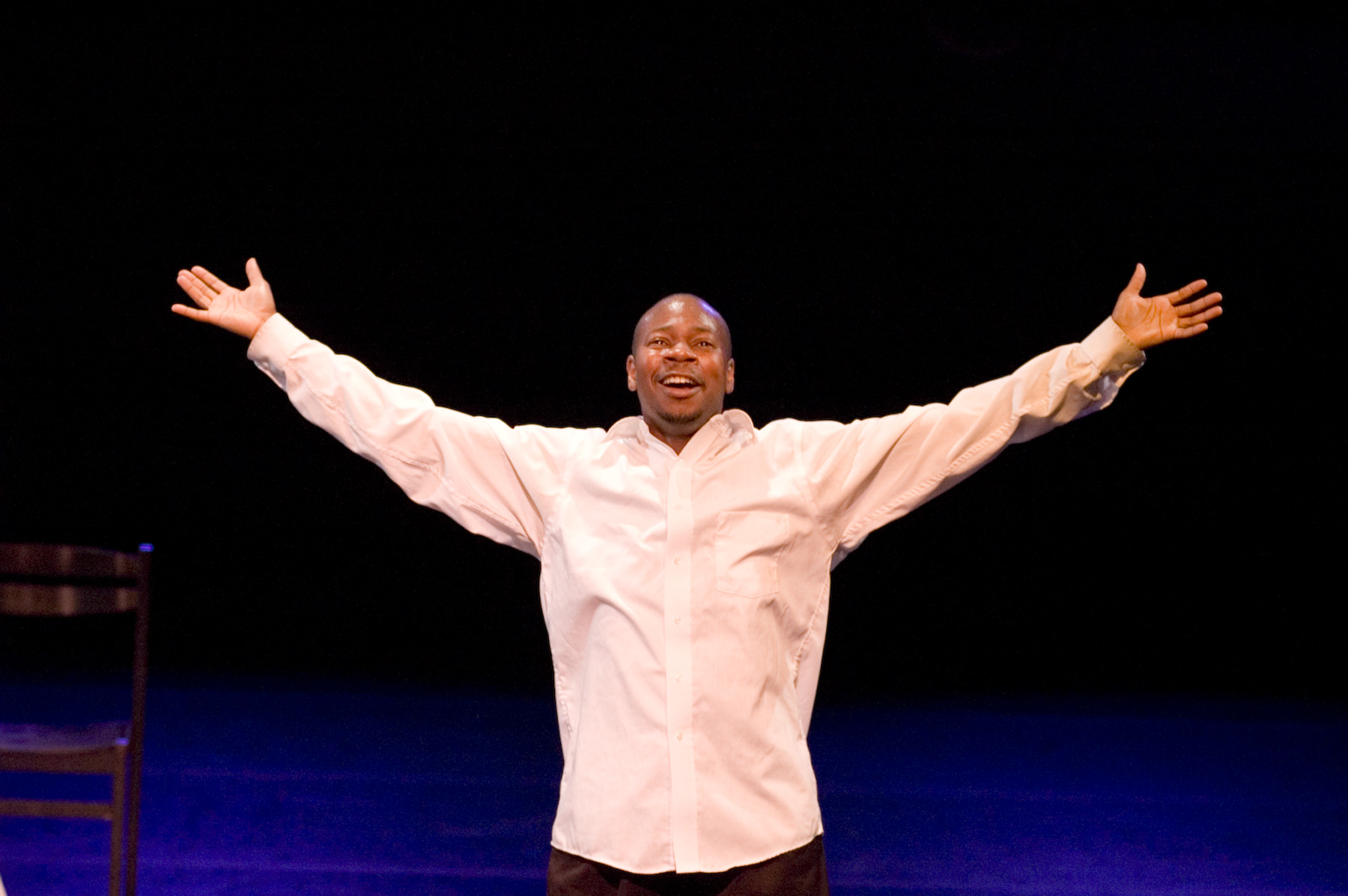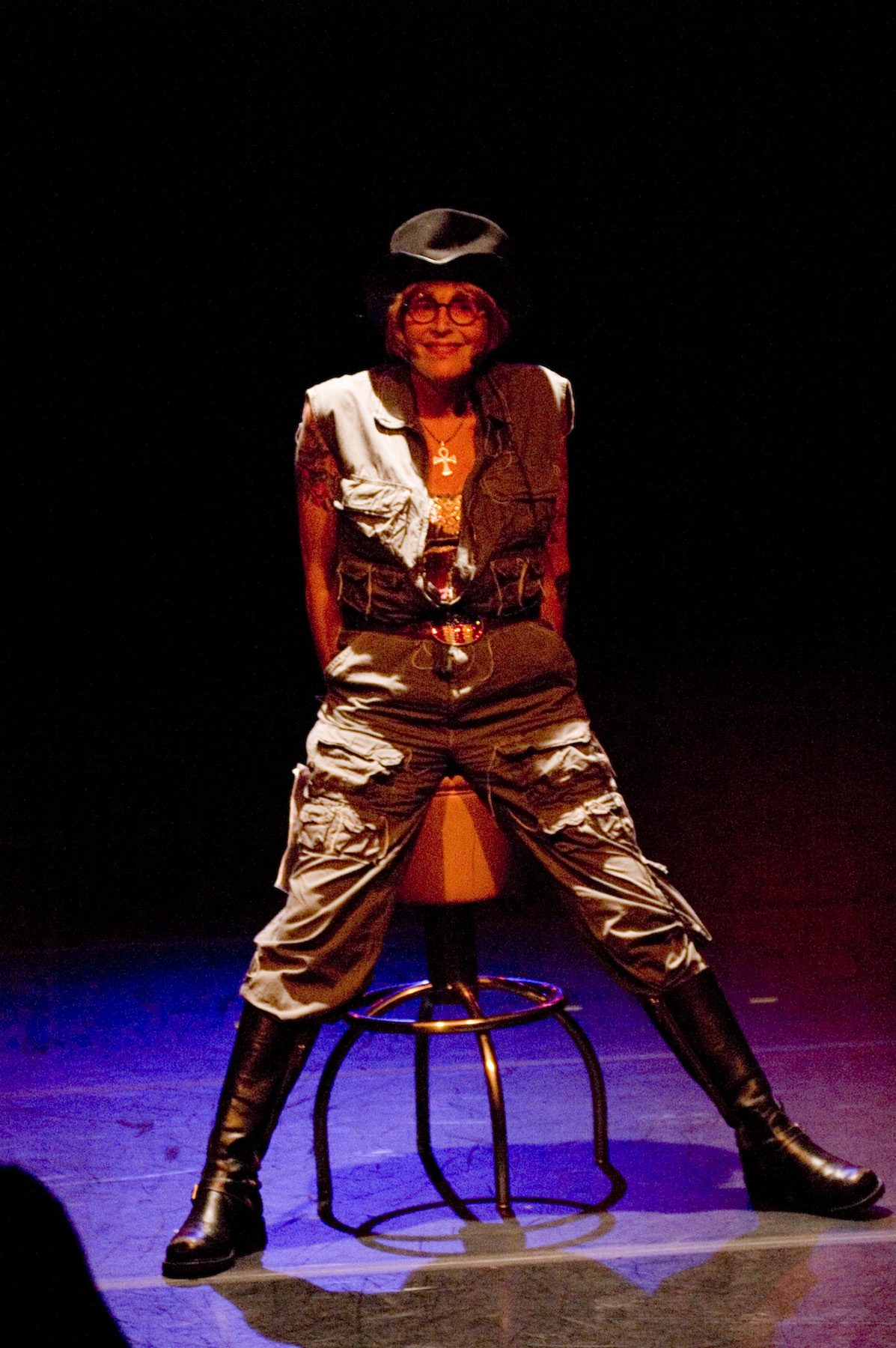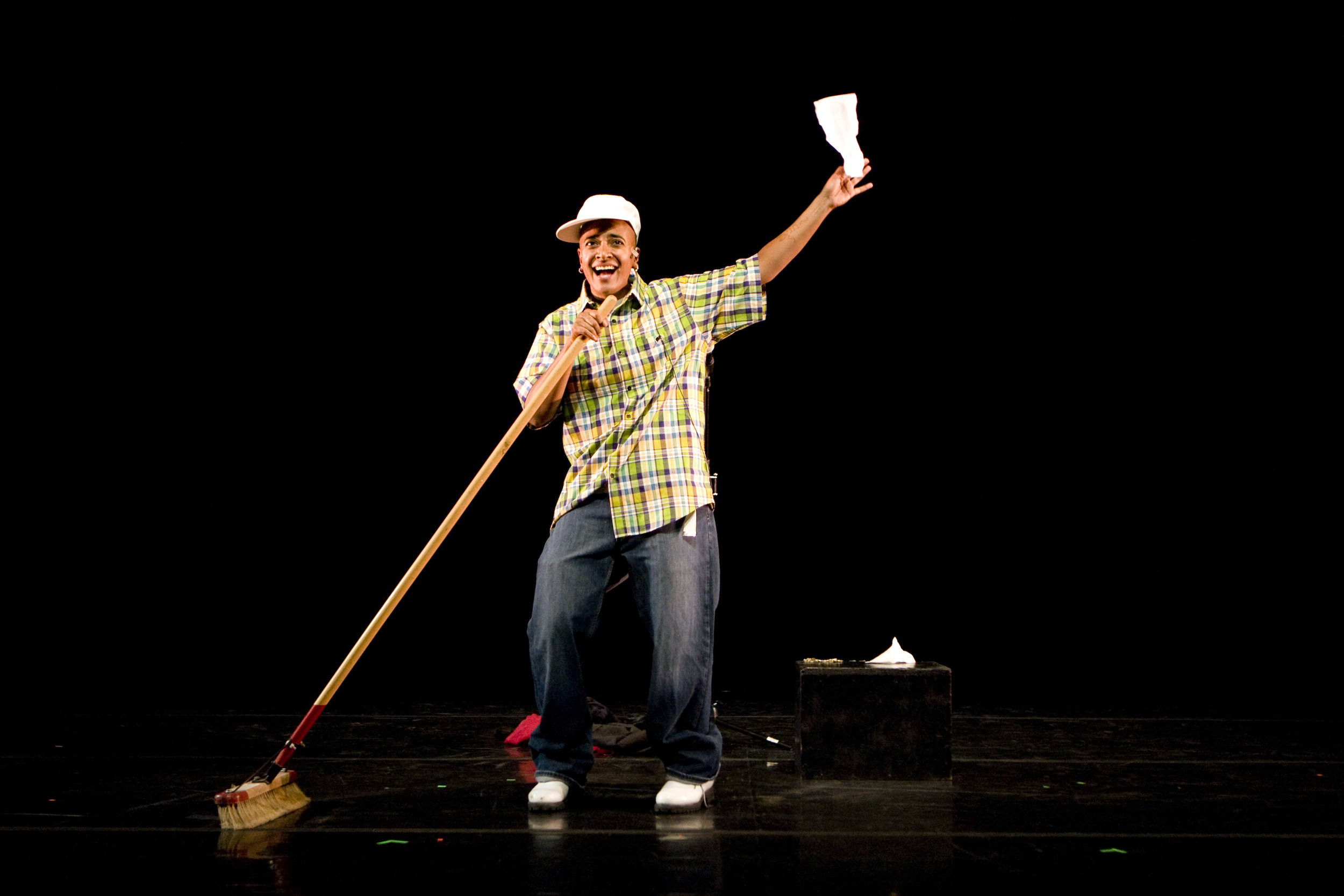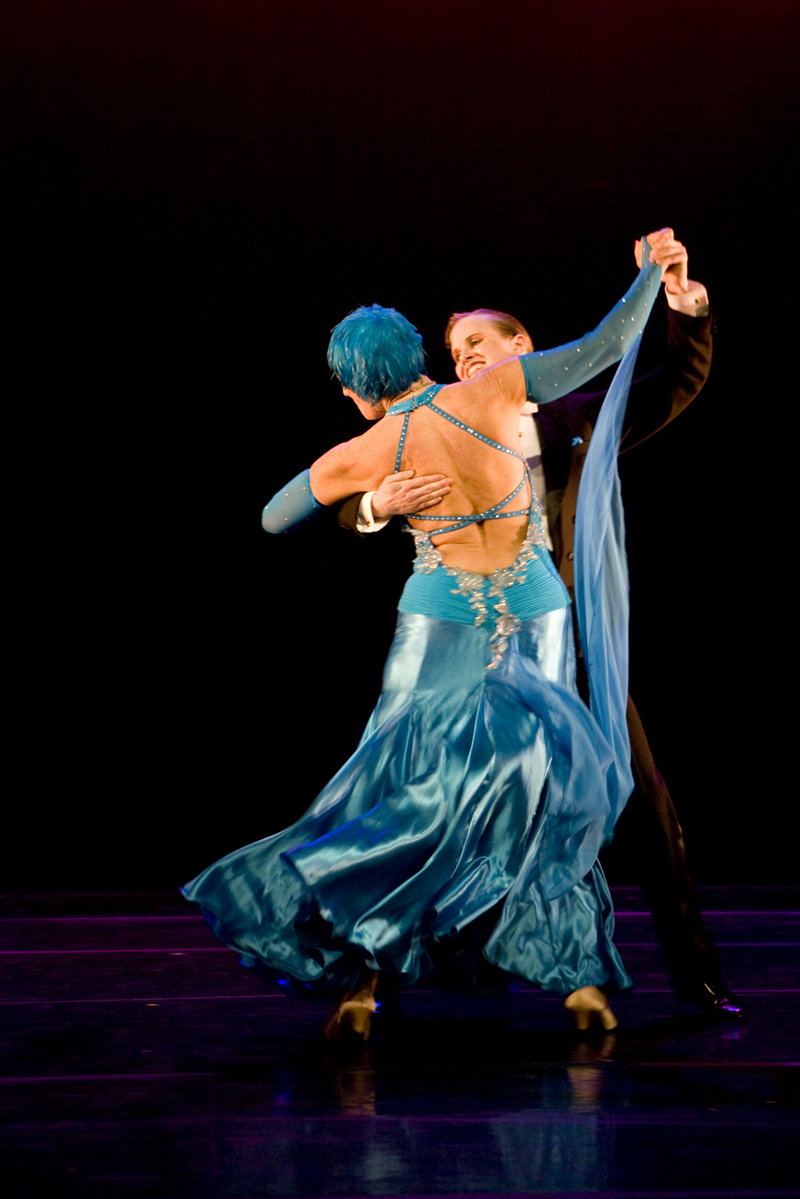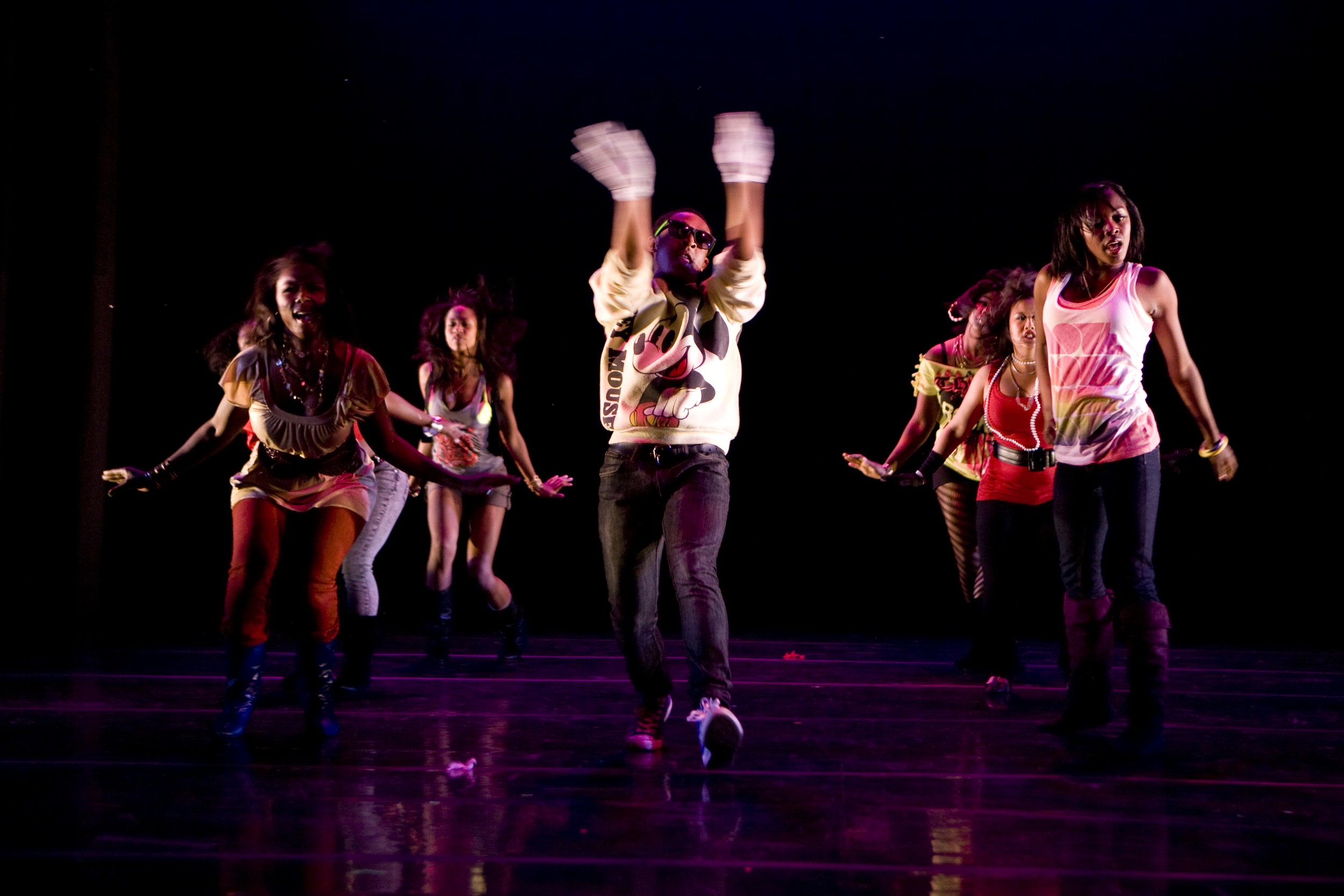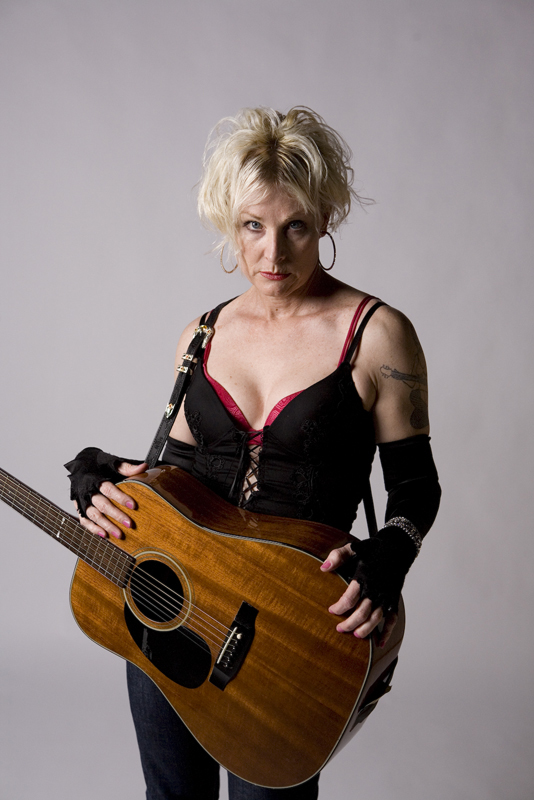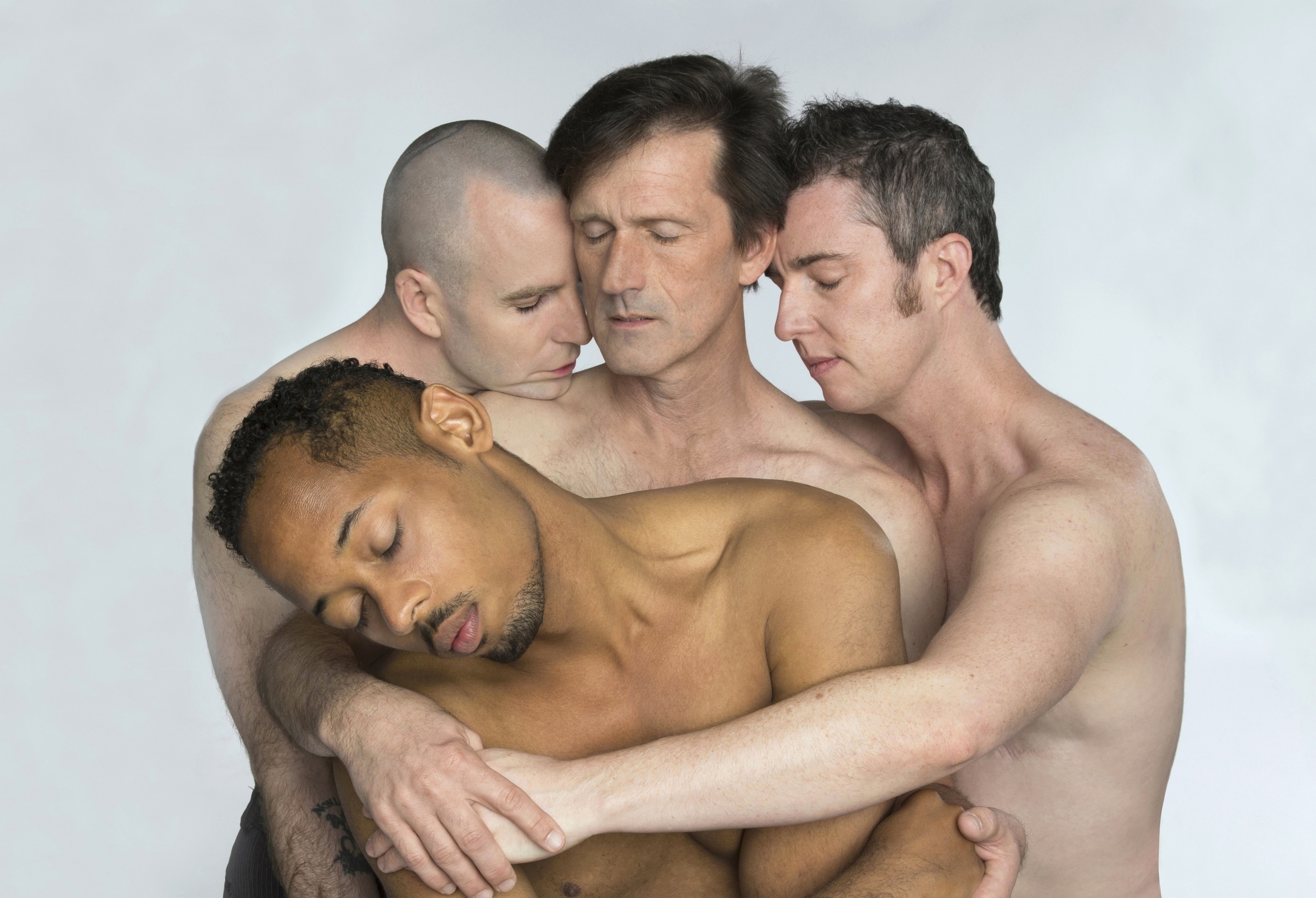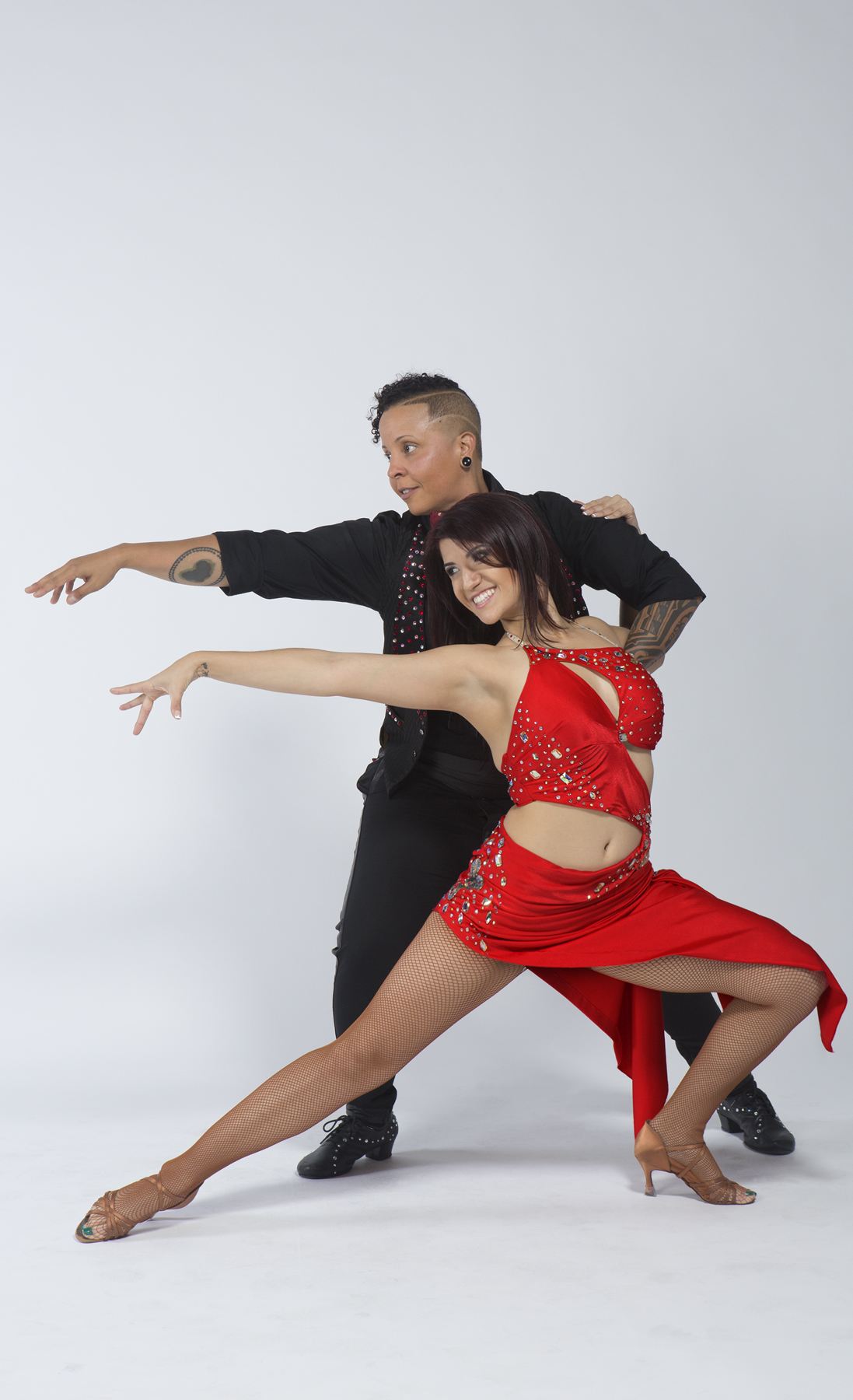INTERVIEW: FRESH MEAT FESTIVAL
By Roula Seikaly | Published July 28, 2016
2016 marks the 15th anniversary of the Fresh Meat Festival, San Francisco's transgender and queer performance extravaganza. Roula Seikaly sat down with Festival founder Sean Dorsey, Shawna Virago, and Eric Garcia to talk about the Festival's origins and how as a small, volunteer-supported non-profit operation they present this boisterous event every year.
Sean Dorsey is the founder and Artistic Director of Fresh Meat Productions, the nation’s first organization to create, present and tour year-round multidisciplinary transgender arts programs. Fresh Meat’s programs include the popular annual Fresh Meat Festival of transgender and queer performance, Sean Dorsey Dance’s local and touring performances, national community residencies, internships and mentoring, and arts programs for emerging transgender artists and arts organizations.
Shawna Virago is a singer-song writer and published author who's work appears in Gender Outlaws: Next Generation and in the anthologies Trans/Love: Radical Sex, Love & Relationships Beyond the Gender Binary and Take Me There. Virago has been featured in documentary works on PBS and NPR. Virago is also the Artistic Director of the San Francisco Transgender Film Festival.
Eric Garcia is a choreographer, performer, filmmaker, teacher, and activist whose feet are deeply rooted in the Bay Area. Inspired by personal narrative and storytelling, Eric has collaboratively worked with groups of incarcerated men, senior adults, and self-identified non-dancers on various multi-media and site-specific projects. He proudly serves as Production Coordinator with Fresh Meat Productions, Sean Dorsey Dance, and the San Francisco Transgender Film Festival.
Roula Seikaly: How would you describe the Fresh Meat Festival to someone outside the arts community or outside of San Francisco?
Sean Dorsey: The Fresh Meat Festival is an annual festival of transgender and queer performance. It's world-class artists plus incredible communities coming together. Some folks refer to it as the "queer opera", an event they look forward to all year. It's great art, it's amazing community, and it's love culture I would say. We talk a lot about the Fresh Meat family, which includes staff, board, advisors, volunteers, and crew. It really is all about the love. And a lot of hard work.
Shawna Virago: I agree. That's a perfect description!
RS: What does "love culture" mean for you in this context?
SD: When I started the Festival in 2001, I brought together artists and activists and we came to the table with that shared sense of purpose. We were all on the same page as regards to the hard work, the commitment required, and choosing consciously to do it in a way that was and is sustainable. We worked from kindness, loving communication, integrity, respect, affirmation, and praise. The reason I brought people together was to celebrate trans and queer artists, but particularly trans artists. We've been looking back over the years - as this is our fifteenth anniversary - we've been looking at Flickr photo albums and images captured from the photo booth that's set up every year for the festival, and its photo after photo of beaming people. It's been wonderful for us to look at that, and very affirming for me to see that people are really having an experience of joy and pleasure, and feeling empowered.
RS: Do you find that the operational model that leads with love is easy to sustain? I ask because in the non-profit world, the tasks facing hard working, underpaid people don’t often rank fun or supportive communication and interaction at the top of the list.
SV: I think being an art space non-profit helps us, compared to a lot of social services and direct service non- profits that are really up against work plans or grant deliverables based on the crisis cases that are helped. I'm grateful for the people who do that work, and I did that work for many years, but I think it creates a culture of stress and the feeling that nothing is ever complete. There is always more to be done. Social services have been decimated. There used to be a time when government agencies - local, state, and federal - were viable, and there's been a sustain attack on that. Now, non-profit social services are the safety net. They're not funded adequately. In San Francisco, and I think this plays out elsewhere, but here in the city there's a debate before the City Board of Supervisors about how much or whether they should continue or reduce domestic violence funding. The argument is "people don't leave their abusers. Why should we keep funding them?" We know it's not that simple. If the City doesn't support that, who will?
That model, and being up against it, is so challenging. Fresh Meat is up against in another way. We're working with people who are basking in discovery and their creation as artists. It's completely different, particularly the energy they give and what we give as well. We're trying to make sure that people who've never worked with theater professionals - directors, stage managers, and technical crews - as trans and gender-variant performers, that finally they have a full-fledged experience. I think that, as a non-profit, we're always thinking about how we stay afloat, how we secure funding and the like, but it's a completely different energy. People come into it not in crisis.
RS: In other words, what the Festival offers is a kind of mirror space, one that is positive and supportive and welcoming to those who face all the ugliness that society can and does spit out.
SD: That's exactly it, yes.
RS: Has that priority - offering community and support and celebration - emerged over time, or did that help form the foundation?
SD: That idea of mirroring or reflection of a person's authentic experience in performing arts and all arts was definitely part of my founding vision. I didn't start out to found an organization. I was going to put on this one- time-only-event, and there was such a great response that we kept going. Before Fresh Meat, there definitely were trans leaders and artists making work and pursuing courageous ways to get their work out there. Jordy Jones, here in San Francisco, had produced some events that included trans and gender non-conforming artists. Kate Bornstein toured solo, also. In 2002, there was so much underground activity from trans artists that no mainstream venues would touch. Certainly funders wouldn't fund us, mainstream media wouldn't cover us. It ended up that we built on the work of earlier artists and leaders in the trans and queer community. It was very much about creating opportunities for artists who would otherwise not be seen and for those in the audience to see people like themselves on stage.
RS: How has the Festival changed or evolved over 15 years?
SD: Luckily, it's no longer four hours long. I jest, but not really. I think our first festival was probably three-hours long. We were all so hungry for that experience. The venue was packed to the rafters.
SV: I think some things have changed culturally. We inhabit a completely different universe than when and where we started. There's more trans visibility, and we see more trans people in mainstream media. It's very complicated, because lots of whitewashing goes on and there's a lot of gender norming at play. People are not necessarily interested in the gender binary and are trying to carve out lives that don't exist by that model. I feel like part of the Festival's mission is to hold space for live performance, and for audiences to share in that. For me, live performance is the most profound experience, and that stands against social media inundation and the sense that seeing it online is akin to seeing it live. The Festival creates an incredible energy. Also, when we started, San Francisco wasn't facing rampant displacement due to gentrification as we are now. That has impacted who is left locally, as far as performers and audiences are concerned. We have to think in terms of how we make opportunities for artists who live in other states, and that's something we're starting to look at.
RS: The Festival is a huge yearly undertaking. What processes to you have in place to help it proceed as smoothly as possible?
SD: We have Eric Garcia. We should get him in here. Eric is our Production Coordinator, and we would be lost without him. Eric, the question is what processes do you have in place to make it manageable?
Eric Garcia: Honestly, I think it's having a Production Manager. When I came on, capacity building was needed and Sean and Shawna let me take on the management responsibilities of the three major events in our yearly calendar: the San Francisco Transgender Film Festival, the Sean Dorsey Dance performance and travel season, and then the Fresh Meat Festival. On my end, it doesn't feel like we have to start planning and preparing as soon as one event is wrapped up. It's more like intensely focused work for the two to three months prior to each event and sustained low-key work throughout the year. What I'm excited about is that each year, we implement new systems so that the actual workload is alleviated somewhat. So, for example, switching to Salesforce from using Excel spreadsheets made all the difference. We work on a trimester schedule, and there's always something to be done, but it feels pretty manageable.
SD: As the film festival is wrapping up, I'm working on curating the following Fresh Meat Festival. There's a lot of overlap in terms of who is working on what, and that makes the overall work load seem less imposing.
SV: Sean is thinking about curatorial demands, and starting to contact people in January or February. The different demands relating to production demands kick in after that. We have to think about front-of-house matters, organizing a volunteer team, tech crew concerns. It's a lot of people to engage. We work with a social media manager who contracts for each event. We work with community partners to spread the word, and we still do a poster campaign. It's a bit of new and old strategies combined.
EG: In terms of how we function as a team, as Shawna mentioned, she the Artistic Director for the Film Festival and Sean curates the Fresh Meat Festival, and I manage production and contracts on the wider timelines for each event.
SD: And we sing a lot. And wear bow ties. That makes all the difference!
SV: What's good is that we've worked together for many years now. We know that we have to just keep on top of the tasks, and keep working steadily, and then it's all accomplished. Not everyone has a great work ethic, and you find that out pretty quickly and always under the worst of circumstances.
EG: What people don't know or that they forget is that there's just the three of us working on this at the administrative level. We work out of our house. That's also what makes this work so much fun. The Festivals and Sean Dorsey Dance have such great reputations that when I ask someone to volunteer, they say 'yes' and are truly enthusiastic about it.
SV: We've also learned that, by comparison with other organizations, our focus on what we want to do and what we do well is key. We've learned that fantasy thinking, which is needed as an artist, but it has to be balanced against what is realistic and what can be accomplished from a resources perspective. It's also a matter of audience and space and knowing what people will want to see. We're pretty clear on what we can do and what makes sense.
SD: And being connected to the community we're serving. We have high standards, of course, but we welcome the work of emerging AND established artists.
SV: We don't bully or micromanage people. There's a history in theater of artistic directors and/or directors resorting to awful tactics to motivate the people they work with, and that doesn't work for us. Life is too short for that.
RS: How do you put the call out to visual artists and live performers, and what does curation for those related yet separate entities include for you?
SD: So, we no longer do Fresh Meat in the Gallery. We lovingly closed that program. As for live performances, it's a combination of looking at work all year long, including when I'm on tour with Sean Dorsey Dance. We're always looking out for artists, and we receive a lot of submissions. We also take input from our board and a wider advisory family. They suggested we look at queer bachata champions Jahaira Fajardo and Angelica Medina, which we did, and the duo ended up on our promotional poster. They're blazing new space as a queer bachata duo. It's a genuine mix of outreach, receiving recommendations from community and our board and the like. We really want to present everyone who reaches out to us and who are interested, but it becomes a capacity question. We're often asked why we don't host the festival over two weekends, because the performances always sell out. We tried that when ODC hosted us, but in the long term, it's not sustainable. Generally speaking, for non-profits organizations, we're encouraged to do more of something that is succeeding. In terms of capacity, it would be a huge strain on us organizationally to expand the festival. So, we happily enjoy the one-weekend sold out shows.
SV: Also, we work hard, we're an effective team and we value flexibility in our working process and those who participate in the Festival. We all try hard to achieve that balance of responsibilities and personal projects outside of Fresh Meat. Otherwise, it becomes a grind. Nobody here wants that outcome. I mean, we're all trying to avoid day jobs, and this is a good compromise for us. We take it seriously, and we're grateful for what we do and those who work with us.
RS: The Festival enjoys philanthropic support from regional partners. Was or is that hard to secure, and if so, what do you think is the reason for that?
SD: We are blessed to have city and state and now some national support. As of 2014, we are the first transgender organization to receive support from the NEA (National Endowment for the Arts). Again, I'm mindful of the fact that so many trans artists and activists who came before Fresh Meat. They broke down doors and butted up against glass ceilings. We talked with funders who had never funded trans artists and arts before. I think the biggest hurdle, and this still true to today, is that as soon as people heard "transgender art", they assume drag. There's nothing wrong with drag, but that's not what we're doing, and funders didn't see that early on. That was a hurdle, and I think it's still true that we're held to a different standard. We'll still see sometimes that peer dance companies or peer festivals will be funded at higher levels.
RS: What is your favorite thing about the Festival, or what are your favorite memories over the last 15 years? What motivates you to keep going?
SD: It's so hard to narrow it down! I guess I would say that my TWO favorite things about the Festival are the extraordinary loving, luminous family connection and community that we create at the Festival. I feel this deeply both backstage with all the performing artists and in the theater and lobby with our audiences. The space is positively buzzing with love.
My other favorite thing is being moved deeply again and again by the artists I have the opportunity to present. This is revolution. This is transformation. This is healing.
What motivates me to keep going? A combination of love and my hunger for justice for all our communities.
RS: What can the wider arts community, locally and nationally, do to support trans/queer artists?
SD: The wider arts community can support transgender and queer artists by: going to see our art! Recommending our art to friends, family, the media, presenters, and funders! Presenters can support us by presenting our work and paying us well for our art ... and not just during "Pride Month" or in "LGBT" programming.
Audiences can support us by taking a chance and going to see trans or queer artists even if you yourself aren't trans or queer, or even if you forget what "LGBT" stands for. That's okay! Come see our work. We don't bite and we are AMAZING and powerful and inspiring.
People can call their local media stations and demand better representation of transgender and gender non-conforming people and artists.
People can get involved in activism against racist immigration policies, against the building of new prisons, and in support of human rights legislation.
Images above ©Lydia Daniller
